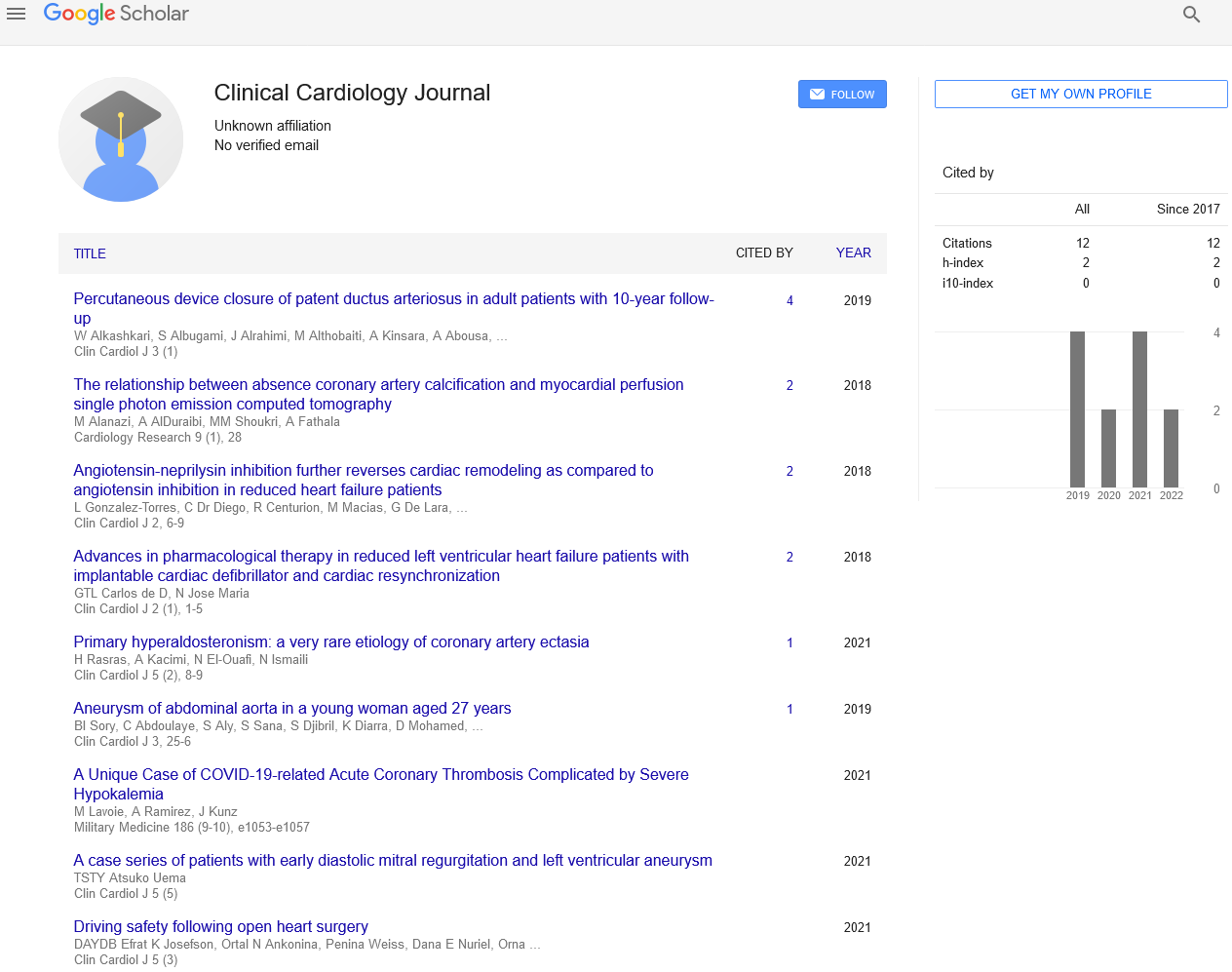Cardiovascular complications in post COVID patients
Received: 06-Sep-2021 Accepted Date: Sep 20, 2021; Published: 27-Sep-2021
Citation: Samad A. Cardiovascular complications in post COVID patients. Clin Cardiol J 2021;5(5):1-1
This open-access article is distributed under the terms of the Creative Commons Attribution Non-Commercial License (CC BY-NC) (http://creativecommons.org/licenses/by-nc/4.0/), which permits reuse, distribution and reproduction of the article, provided that the original work is properly cited and the reuse is restricted to noncommercial purposes. For commercial reuse, contact reprints@pulsus.com
Perspective
The coronavirus disease of 2019 (COVID-19) is caused by the coronavirus 2 that produces severe acute respiratory illness (SARS-CoV-2). In addition to systemic inflammation and pulmonary issues, cardiovascular abnormalities might occur, resulting in significant morbidity and mortality. With almost a year of experience with the COVID-19 (SARS-CoV-2) virus, it has been observed that certain COVID-19 (SARS-CoV-2) people have had postCOVID symptoms such as chronic coughs, cognitive difficulties, and other complaints after recovering from the infection. These long-haulers appeared to have heart problems as well.
Determine the long-term implications of coronavirus will likely be one of the most important cardiology problems in 2021. COVID patient cadaver studies also raised concerns regarding long-term heart damage since COVID kills cardiomyocytes. However, the question of what the long-term ramifications of this cardiac injury will be has been raised. A link between COVID-19 and cardiovascular illness has also been discovered in clinical investigations. Despite the fact that COVID-19 can cause myocardial injury, arrhythmia, and acute coronary syndrome, patients with COVID-19 appear to have worse outcomes and a higher chance of death if they have pre-existing cardiovascular disease. COVID-19 damages the heart both directly and indirectly. When a virus infects heart cells and causes myocarditis, it causes direct cardiac damage (cell inflammation). This inflammation can be minor to severe, leading in decreased heart function, abnormal heart rhythms, and the possibility of abrupt cardiac death. They use blood testing for cardiac biomarkers, an ECG, and an echocardiography with strain studies to look for signs of heart injury or malfunction. According to this cardiac work-up, many of these patients have suffered heart harm as a result of COVID-19 illness. Patients have underlying cardiac damage that is now generating symptoms, even though they test negative for the virus. Neutrophils have long been thought of as innocent bystanders or biomarkers for cardiovascular disease. Neutrophils, on the other hand, have been shown to have a crucial role in cardiovascular inflammation and repair in recent investigations.
The impact of established and novel cardiovascular risk factors on neutrophil generation and function is discussed in this Review. The present understanding of neutrophil contribution to several stages of atherosclerosis, including atherogenesis, plaque instability, and plaque erosion, is then reviewed. We highlight the dual function of neutrophils in pathogenic and repair processes in stroke, heart failure, myocardial infarction, and neointima development in the setting of cardiovascular consequences of atherosclerosis. Finally, we stress the need of understanding neutrophil roles in cardiovascular homeostasis and disease in order to develop treatment strategies that target neutrophil numbers, functional status, and effector mechanisms.





